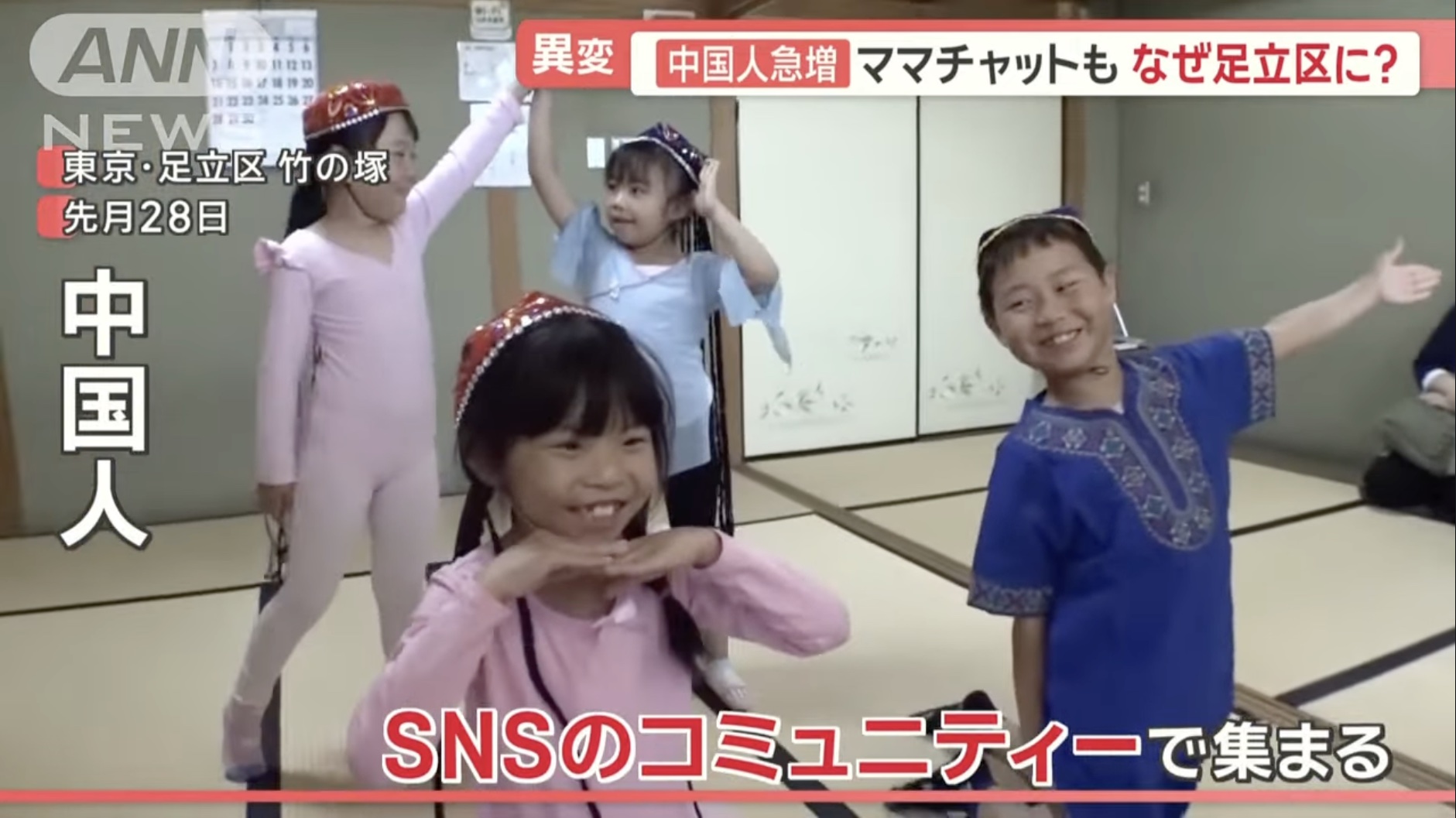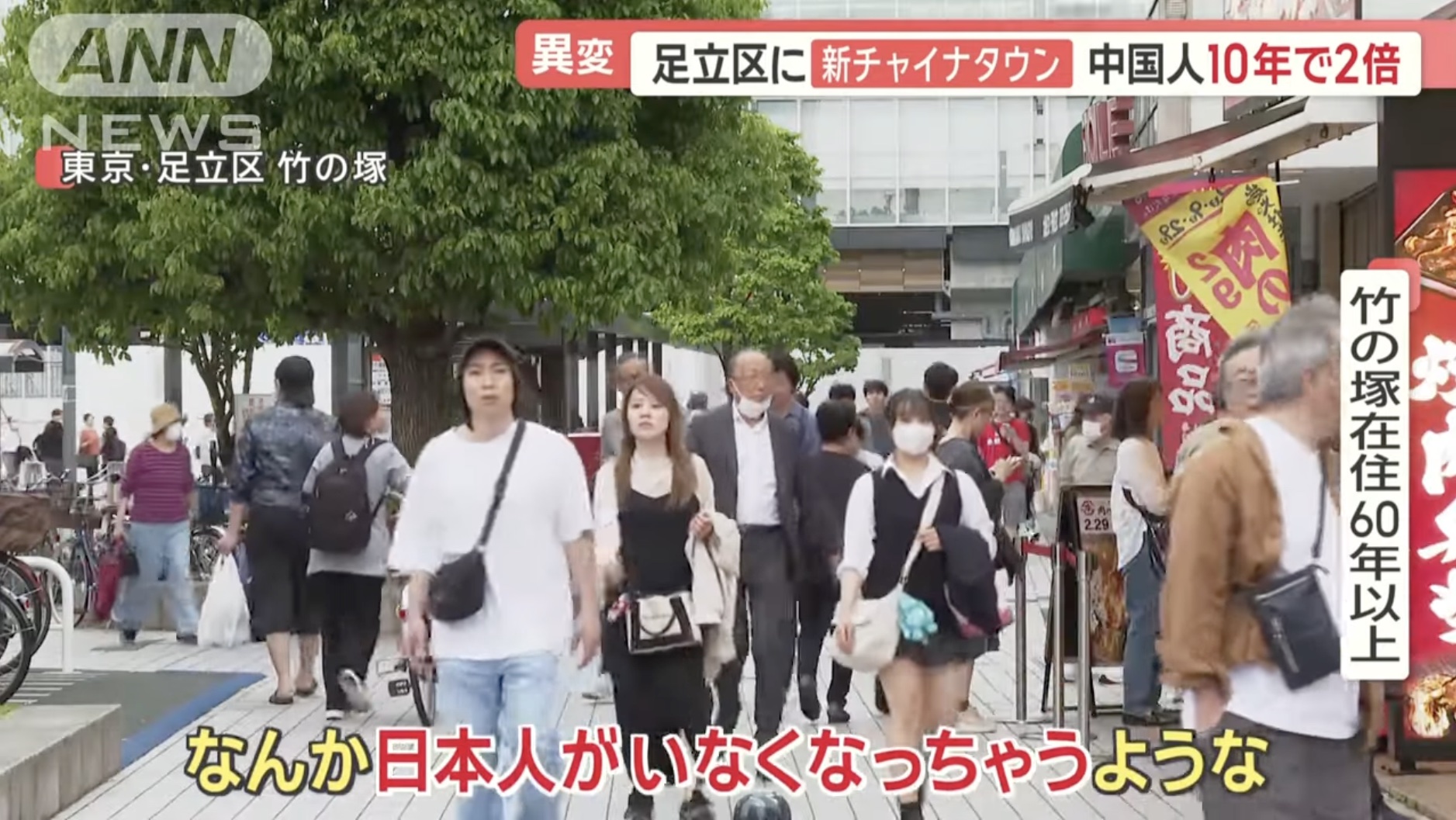TOKYO, May 01 (News On Japan) - In Tokyo, the Chinese population has been on the rise, with Adachi Ward seeing more than double the number from ten years ago.
A Chinese man shares, "It’s a day off, so we're getting together with friends to have a meal."
In Takanotuka, Adachi Ward, the rapid increase in the Chinese population has led to what some are calling a "Chinatization" of the area.
A visit to a newly opened fresh food store in March reveals Chinese vegetables that are said to be delicious when stir-fried.
Additionally, the store offers dragon fruit, a popular Chinese fruit with a hard peel revealing a translucent flesh, among other ingredients unfamiliar in Japan.
Li Chunliang, owner of MIRAKU Fresh Market, notes, "I thought we’d have many Chinese customers, so I decided to open a shop here. About 70% of our customers are Chinese."
A local resident comments, "There are many Chinese people living in our apartment building too."
A resident of Takanotuka for over 60 years expresses concern, "It feels like there have been more in the last two to three years. It’s worrying, like the Japanese are disappearing."
The number of Chinese fleeing abroad has surged in recent years.
A Chinese resident of Takanotuka says, "The rent is cheap," and when asked if the rent is affordable, confirms, "Yes, it’s cheap. About 70,000 yen for a 2DK apartment."
That day, a traditional Chinese dance lesson was taking place, attended solely by Chinese individuals, gathered through a community on social media.
A Chinese traditional dance instructor from Hong Kong notes, "There are about 300 people in each group, and we have 7 to 8 groups. It's a lot. They help each other with visa extensions and job issues in mother group chats."

These communities of Chinese mothers are numerous. When asked why they want to live in Japan, a parent says, "I think Japan has great educational and welfare systems. Medical expenses for children are also free," adding, "We plan to continue living in Japan. The competition in China is fierce, and it's easy to accumulate stress."
Some have fled China for unexpected reasons.
A 34-year-old woman who runs a store for Chinese daily necessities moved to Japan ten years ago and opened her dream store three years ago. She explains why she came to Japan: "In Japan, you don’t have to worry about relationships with friends or relatives. You don’t have to think about marriage or issues with in-laws."
Last year, marriage numbers in China hit a record low, with intense societal pressure to marry contributing to the migration to Japan.
The owner of a store for Chinese goods reflects, "Living alone here is very comfortable. I don’t want to go back to China."
Chou, a 31-year-old from Hunan who moved to Japan seven years ago and runs a Hunan cuisine restaurant in Kameido, Tokyo, originally managed a restaurant in Heilongjiang, China. Known for its fiery spices, his popular menu item is a spicy rice bowl heaped with beef and lots of chili peppers.
Chou shares, "A friend’s sister once came to Japan to study and said the Japanese are kind and the cities are clean, which made me admire the place."
Chou also manages apartments for Chinese nationals. Most of his tenants are students who wish to work in Japan after learning the language.
Chou observes, "Salaries in Japan are high, and the manners are good. After living in Japan for a while, life in China doesn’t suit me anymore. Many people want to live in Japan long-term."
Source: ANN
















